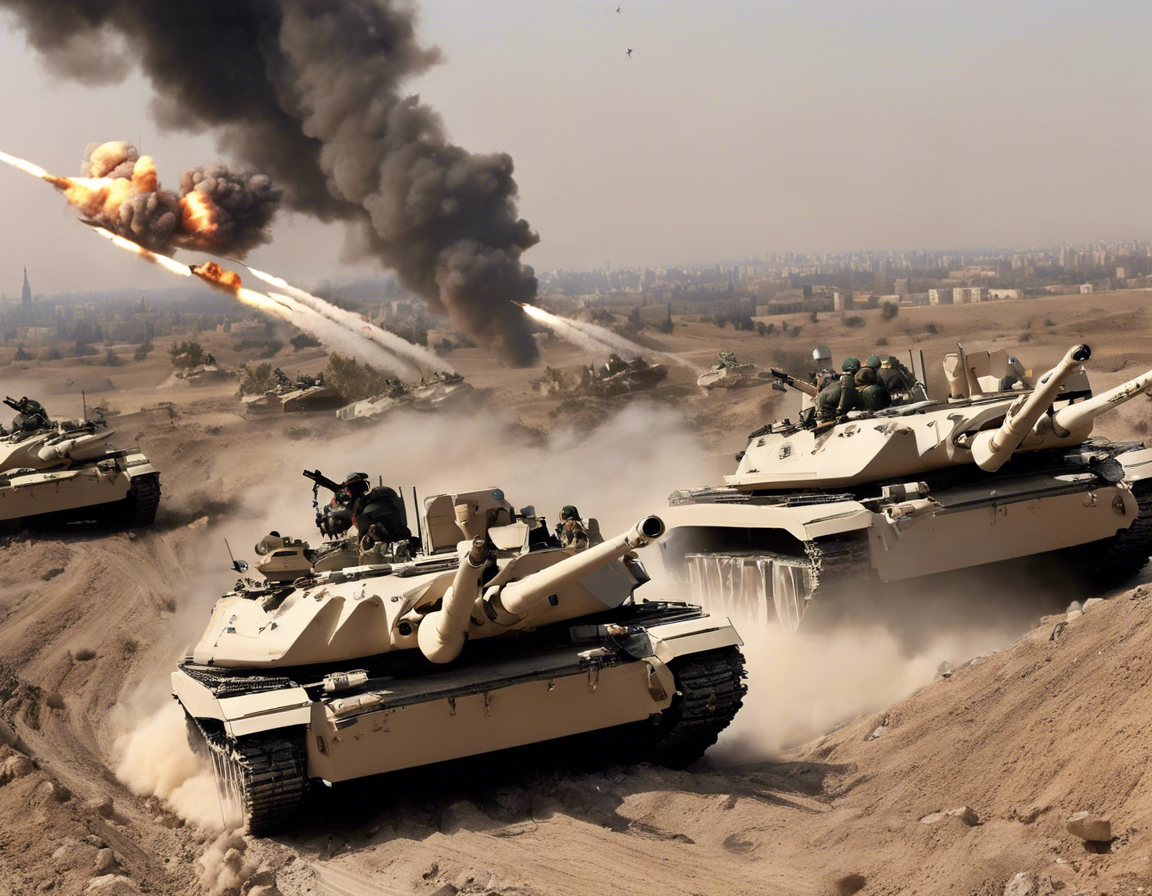In recent news, the escalating tensions between Iran and Israel have raised concerns about the possibility of triggering a global conflict, leading to fears of World War III looming on the horizon. The situation has become increasingly volatile, with Iran launching attacks on Israel, prompting international alarm and calls for de-escalation. Understanding the complex dynamics at play, it is crucial to delve into the root causes, implications, and potential outcomes of this dangerous standoff.
The Historical Context
The longstanding animosity between Iran and Israel stems from a myriad of political, religious, and ideological differences that have fueled conflict for decades. Iran, as a predominantly Shia Muslim country, has been a vocal critic of Israel, which it perceives as an illegitimate state occupying Palestinian territories. The Iranian government’s support for Palestinian militant groups, such as Hamas and Hezbollah, has exacerbated tensions with Israel, leading to frequent confrontations and proxy wars in the region.
Recent Escalations
The recent attacks by Iran on Israel have further inflamed an already volatile situation. From missile strikes on Israeli territories to cyber-attacks targeting critical infrastructure, Iran’s aggressive actions have pushed the two nations to the brink of a full-blown conflict. Israel, known for its robust defense capabilities and strategic alliances, has responded with military strikes of its own, raising concerns about a potential escalation into a wider regional or even global conflict.
International Response
The international community has been quick to condemn the hostilities between Iran and Israel, urging both sides to exercise restraint and prioritize diplomatic solutions. Key global players, including the United States, European Union, and United Nations, have called for de-escalation and dialogue to prevent the situation from spiraling out of control. However, deep-rooted animosities, conflicting interests, and regional power dynamics complicate efforts to defuse the crisis effectively.
Implications of a Wider Conflict
The prospect of a full-scale war involving Iran and Israel carries significant implications for regional stability and global security. A broader conflict in the Middle East could draw in other countries with vested interests in the region, leading to a protracted and devastating war with far-reaching consequences. The presence of nuclear capabilities in Iran and Israel further heightens the stakes, raising concerns about the potential use of weapons of mass destruction in a worst-case scenario.
Diplomatic Initiatives and Pathways to Peace
Amidst the specter of conflict, diplomatic initiatives offer a glimmer of hope for resolving the crisis and preventing a catastrophe. Multilateral forums, such as the United Nations Security Council and regional organizations like the Arab League, can play a crucial role in facilitating dialogue and negotiations between Iran and Israel. Confidence-building measures, de-escalation protocols, and peace-building efforts are essential to navigate a way out of the current crisis and pave the path towards sustainable peace in the region.
Frequently Asked Questions (FAQs)
- What are the root causes of the tensions between Iran and Israel?
-
The tensions stem from historical, political, and religious differences, exacerbated by territorial disputes and ideological rivalries.
-
Why is the conflict between Iran and Israel significant on a global scale?
-
The conflict has implications for regional stability, international security, and the balance of power in the Middle East, with the potential to escalate into a wider war.
-
What is the role of the international community in de-escalating the crisis?
-
Global actors have called for restraint, dialogue, and diplomatic solutions to prevent further escalation and facilitate peaceful resolution of the conflict.
-
How do nuclear capabilities impact the Iran-Israel conflict?
-
The presence of nuclear weapons in both countries raises concerns about potential use and the risk of a catastrophic escalation in the event of a full-scale war.
-
What are some potential pathways to peace in the Iran-Israel conflict?
- Diplomatic initiatives, dialogue, confidence-building measures, and regional cooperation are essential for de-escalating tensions and resolving the underlying causes of the conflict.
